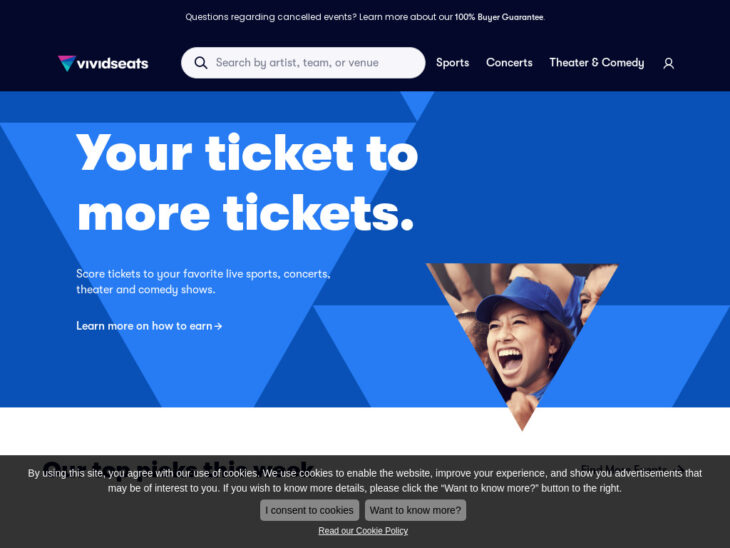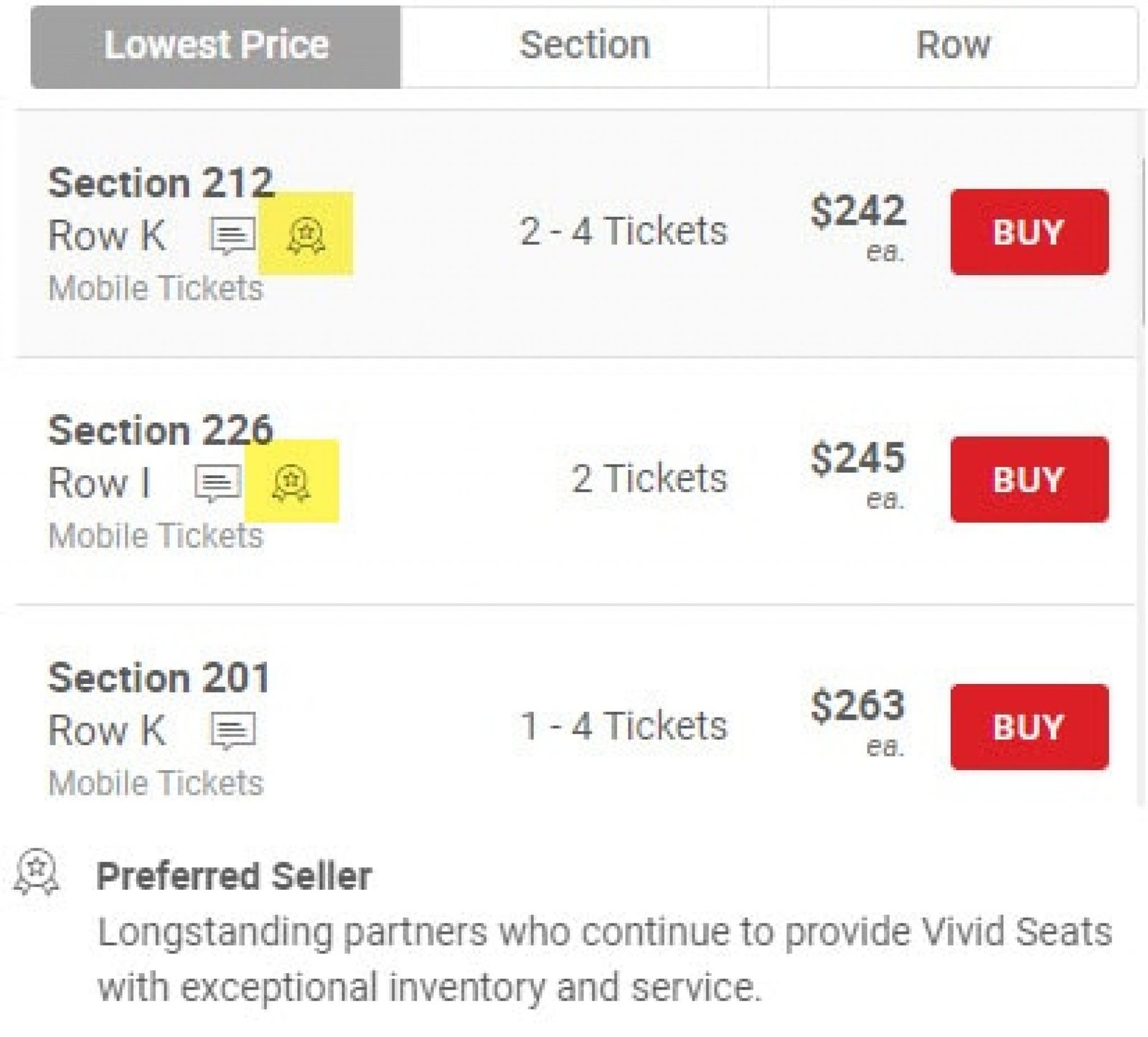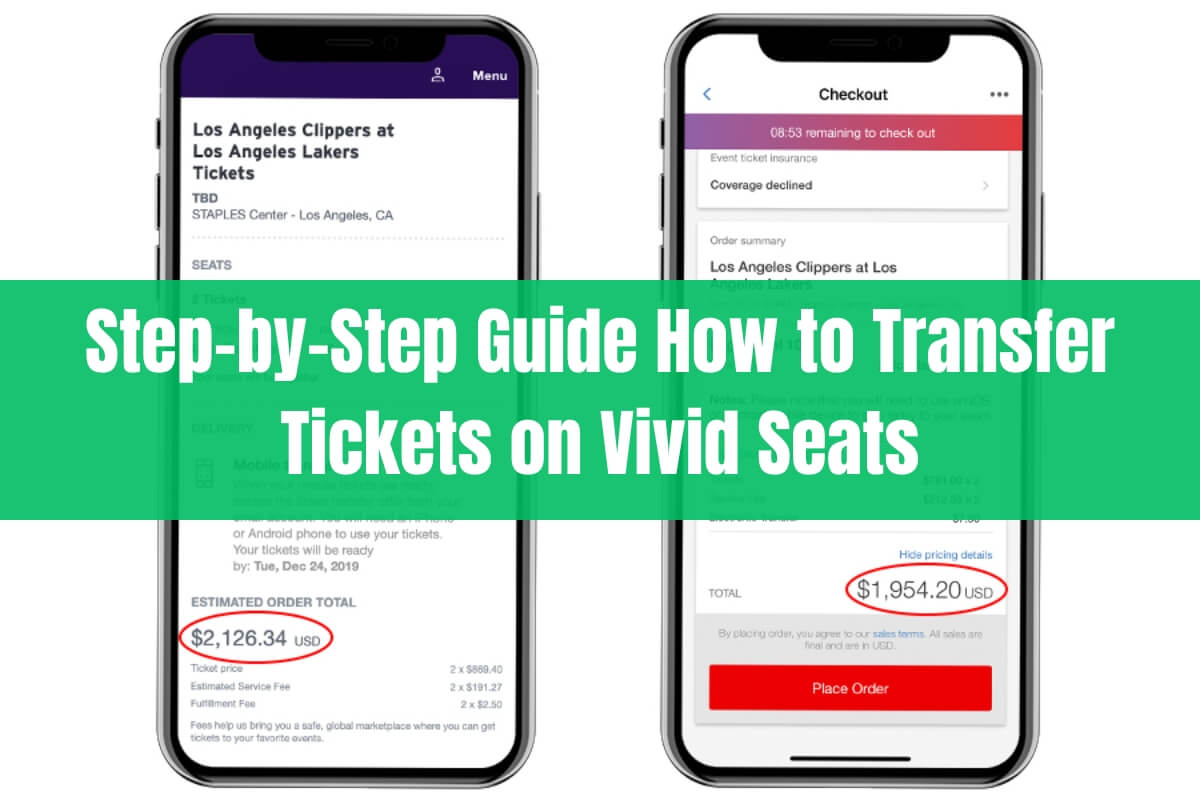Understanding the Secondary Ticketing Market
The secondary ticketing market has experienced significant growth in recent years, with platforms like Vivid Seats, StubHub, and SeatGeek leading the way. This market allows individuals to buy and sell tickets to various events, including concerts, sports games, and theater productions. For those looking to resell tickets, understanding the secondary ticketing market is crucial for success. The market is driven by supply and demand, with prices fluctuating based on the popularity of events and the availability of tickets. To resell tickets effectively, it’s essential to stay up-to-date on market trends and adjust pricing strategies accordingly.
One of the primary benefits of reselling tickets on platforms like Vivid Seats is the ability to reach a large customer base. These platforms provide a secure and convenient way for buyers to purchase tickets, and for sellers to list their tickets for sale. However, it’s essential to be aware of the fees associated with using these platforms, as they can eat into profit margins. By understanding the fees and pricing structures, resellers can make informed decisions about how to list their tickets and maximize their profits.
When it comes to reselling tickets, there are several risks to consider. One of the primary risks is the possibility of tickets being cancelled or refunded. This can happen if an event is postponed or cancelled, or if the ticket seller is unable to provide the tickets as promised. To mitigate this risk, it’s essential to have a clear understanding of the refund and cancellation policies of the platform and the ticket seller.
Another risk associated with reselling tickets is the potential for scams and fraudulent activity. To avoid this, it’s essential to use reputable platforms and to be cautious when dealing with unknown buyers or sellers. By taking the necessary precautions, resellers can minimize their risk and ensure a successful transaction.
Overall, understanding the secondary ticketing market is critical for those looking to resell tickets. By staying up-to-date on market trends, adjusting pricing strategies, and being aware of the risks, resellers can maximize their profits and achieve success in the secondary ticketing market.
Getting Started with Vivid Seats: A Beginner’s Guide
Vivid Seats is a popular online marketplace for buying and selling tickets to various events, including concerts, sports games, and theater productions. To get started with reselling tickets on Vivid Seats, it’s essential to create an account and understand the platform’s features and fees. Creating an account is a straightforward process that requires providing basic information such as name, email address, and password.
Once the account is created, users can start listing their tickets for sale. Vivid Seats provides a user-friendly interface for creating listings, which includes adding ticket details, setting prices, and uploading images. It’s essential to provide accurate and detailed information about the tickets, including the event name, date, time, and seat location.
Vivid Seats charges a fee for selling tickets on the platform, which ranges from 10% to 15% of the sale price. This fee is deducted from the sale price, and the remaining amount is transferred to the seller’s account. Additionally, Vivid Seats offers a payment protection guarantee, which ensures that buyers receive their tickets on time and in the correct condition.
To increase the chances of selling tickets quickly, it’s essential to price them competitively. Vivid Seats provides a pricing guide that helps sellers determine the optimal price for their tickets based on demand and supply. Sellers can also use the platform’s data analytics tools to track ticket sales and adjust their prices accordingly.
Another key feature of Vivid Seats is its customer service support. The platform provides a comprehensive FAQ section and a customer support team that is available to assist with any questions or issues. Sellers can also use the platform’s messaging system to communicate with buyers and resolve any issues that may arise.
Overall, getting started with Vivid Seats is a straightforward process that requires creating an account, understanding the platform’s features and fees, and listing tickets for sale. By following these steps, sellers can start reselling tickets on Vivid Seats and take advantage of the platform’s large customer base and competitive pricing.
How to Identify Profitable Tickets to Resell
Identifying profitable tickets to resell is a crucial step in maximizing profits with secondary ticketing. To do this, it’s essential to research and understand the demand for tickets to various events, teams, and artists. One way to do this is to use online tools and resources, such as ticketing websites and social media platforms, to gauge interest and demand for tickets.
Another key factor to consider is the pricing of tickets. Understanding the ticket pricing strategy of the primary ticket seller, as well as the resale market, can help resellers determine the optimal price for their tickets. Additionally, resellers should be aware of the fees associated with reselling tickets on platforms like Vivid Seats, as these fees can eat into profit margins.
When it comes to identifying profitable tickets to resell, it’s also essential to consider the supply and demand of tickets. Events with high demand and limited supply, such as sold-out concerts or sports games, tend to have higher resale values. On the other hand, events with low demand and high supply, such as weekday games or off-peak season events, tend to have lower resale values.
Resellers can also use data analytics tools to identify trends and patterns in ticket sales and pricing. By analyzing data on ticket sales, pricing, and demand, resellers can make informed decisions about which tickets to buy and sell, and at what price.
Some of the most profitable tickets to resell include tickets to popular concerts, sports games, and theater productions. These events tend to have high demand and limited supply, making them ideal for reselling. Additionally, tickets to events with high-profile performers or teams, such as NFL or NBA games, tend to have higher resale values.
Ultimately, identifying profitable tickets to resell requires a combination of research, analysis, and strategy. By understanding the demand for tickets, pricing, and supply, resellers can make informed decisions about which tickets to buy and sell, and maximize their profits with secondary ticketing.
Pricing Strategies for Maximum Profit
Pricing is a critical component of reselling tickets on Vivid Seats. The right pricing strategy can help resellers maximize their profits, while the wrong strategy can lead to losses. In this section, we will discuss various pricing strategies that resellers can use to maximize their profits.
One of the most effective pricing strategies is dynamic pricing. This involves adjusting the price of tickets based on demand and supply. For example, if a particular event is in high demand, resellers can increase the price of their tickets to maximize their profits. On the other hand, if demand is low, resellers can decrease the price of their tickets to stimulate sales.
Another pricing strategy is competitive pricing. This involves researching the prices of similar tickets on Vivid Seats and pricing your tickets competitively. This can help resellers attract more buyers and increase their sales.
Bundle deals are another pricing strategy that resellers can use to maximize their profits. This involves offering multiple tickets for sale at a discounted price. For example, resellers can offer a bundle deal for a concert and a meet-and-greet with the artist. This can help resellers attract more buyers and increase their sales.
Data and analytics can also be used to inform pricing decisions. Resellers can use tools like Google Analytics to track the performance of their listings and adjust their prices accordingly. For example, if a particular listing is not selling well, resellers can decrease the price to stimulate sales.
It’s also important to consider the fees associated with reselling tickets on Vivid Seats. Resellers should factor in the fees when setting their prices to ensure that they are making a profit. Additionally, resellers should be aware of the tax implications of reselling tickets and factor in the taxes when setting their prices.
Ultimately, the key to maximizing profits with secondary ticketing is to find the right pricing strategy. By using dynamic pricing, competitive pricing, bundle deals, and data and analytics, resellers can increase their sales and maximize their profits.
Effective Listing and Marketing Techniques
Creating effective listings is crucial to selling tickets on Vivid Seats. A well-written listing can help attract more buyers and increase the chances of selling tickets quickly. In this section, we will discuss some effective listing and marketing techniques that resellers can use to maximize their sales.
Writing compelling titles and descriptions is essential to creating effective listings. The title should be clear and concise, and should include relevant keywords that buyers might use when searching for tickets. The description should provide more detailed information about the tickets, including the seat location, row, and section.
Using high-quality images is also important to creating effective listings. Images can help buyers visualize the tickets and the event, and can increase the chances of selling tickets quickly. Resellers can use images of the tickets, the venue, or the event to make their listings more attractive.
Marketing and promoting listings on social media and other channels is also crucial to maximizing sales. Resellers can use platforms like Facebook, Twitter, and Instagram to promote their listings and reach a wider audience. They can also use online forums and communities to connect with potential buyers and promote their listings.
Another effective marketing technique is to use email marketing. Resellers can use email marketing campaigns to promote their listings and reach a wider audience. They can also use email marketing to follow up with potential buyers and encourage them to make a purchase.
Resellers can also use Vivid Seats’ marketing tools to promote their listings. Vivid Seats offers a range of marketing tools, including promoted listings and sponsored ads. These tools can help resellers increase their visibility and reach a wider audience.
Finally, resellers should make sure to optimize their listings for mobile devices. Many buyers use their mobile devices to search for tickets, so it’s essential to make sure that listings are optimized for mobile devices. This can include using mobile-friendly images and formatting the listing to make it easy to read on a mobile device.
Managing Orders and Customer Service
Managing orders and providing excellent customer service is crucial to building a positive reputation as a reseller on Vivid Seats. In this section, we will discuss the process of managing orders and providing customer service, including responding to customer inquiries and resolving issues.
When a buyer purchases tickets from a reseller on Vivid Seats, the reseller is responsible for ensuring that the tickets are delivered to the buyer in a timely and secure manner. This includes responding to customer inquiries and resolving any issues that may arise during the transaction.
Resellers should make sure to respond promptly to customer inquiries, including emails, phone calls, and messages through the Vivid Seats platform. This helps to build trust and ensures that the buyer feels confident in their purchase.
In the event of an issue with the transaction, resellers should be prepared to resolve the issue quickly and efficiently. This may include refunding the buyer, replacing the tickets, or providing additional support to resolve the issue.
Providing excellent customer service is essential to building a positive reputation as a reseller on Vivid Seats. Resellers who provide excellent customer service are more likely to receive positive feedback and repeat business from buyers.
Vivid Seats also provides a range of tools and resources to help resellers manage orders and provide customer service. These include the ability to track orders, respond to customer inquiries, and resolve issues through the platform.
Resellers should also make sure to keep accurate records of all transactions, including communication with buyers and any issues that may arise. This helps to ensure that resellers can provide excellent customer service and resolve any issues that may arise.
By providing excellent customer service and managing orders effectively, resellers can build a positive reputation on Vivid Seats and increase their chances of success in the secondary ticketing market.
Tax Implications and Financial Considerations
As a reseller of Vivid Seats tickets, it’s essential to understand the tax implications and financial considerations associated with reselling tickets. In this section, we will discuss the tax implications of reselling tickets, including reporting income and claiming deductions.
Reselling tickets on Vivid Seats is considered a business activity, and as such, it is subject to taxation. Resellers are required to report their income from ticket sales on their tax return and pay taxes on their profits. The tax implications of reselling tickets can vary depending on the reseller’s location and the type of tickets being sold.
Resellers can claim deductions for expenses related to reselling tickets, such as the cost of purchasing tickets, shipping and handling fees, and marketing expenses. However, it’s essential to keep accurate records of all expenses and income to ensure that the reseller is in compliance with tax laws and regulations.
It’s also important to note that Vivid Seats may report the reseller’s income to the IRS, and the reseller may be required to provide tax identification information to the platform. Resellers should consult with a tax professional to ensure that they are in compliance with all tax laws and regulations.
In addition to tax implications, resellers should also consider the financial implications of reselling tickets. This includes understanding the fees associated with using the Vivid Seats platform, as well as the potential risks and rewards of reselling tickets.
Resellers should also consider the importance of keeping accurate records of all financial transactions, including income and expenses. This will help to ensure that the reseller is able to accurately report their income and claim deductions on their tax return.
By understanding the tax implications and financial considerations associated with reselling tickets on Vivid Seats, resellers can ensure that they are in compliance with all tax laws and regulations and are able to maximize their profits.
Advanced Strategies for Seasoned Resellers
For experienced resellers, there are several advanced strategies that can be used to optimize listings and expand into new markets and niches. In this section, we will discuss some of these strategies and provide tips on how to implement them.
One advanced strategy is to use data analytics to optimize listings. This involves using tools and software to analyze data on ticket sales, pricing, and demand, and using this data to inform pricing decisions and optimize listings. By using data analytics, resellers can gain a competitive edge and increase their profits.
Another advanced strategy is to expand into new markets and niches. This involves identifying new events, teams, and artists that are in high demand and have high resale value, and creating listings for these events. By expanding into new markets and niches, resellers can increase their profits and diversify their portfolio.
Resellers can also use advanced marketing techniques to promote their listings and attract more buyers. This includes using social media advertising, email marketing, and other forms of online marketing to reach a wider audience and drive traffic to their listings.
Additionally, resellers can use advanced pricing strategies to maximize their profits. This includes using dynamic pricing, competitive pricing, and bundle deals to attract more buyers and increase sales.
Finally, resellers can use advanced customer service techniques to build a positive reputation and increase customer loyalty. This includes responding promptly to customer inquiries, resolving issues quickly and efficiently, and providing excellent customer service to build trust and loyalty with buyers.
By using these advanced strategies, experienced resellers can take their business to the next level and increase their profits. Whether it’s using data analytics to optimize listings, expanding into new markets and niches, or using advanced marketing and pricing techniques, there are many ways to succeed in the secondary ticketing market.





